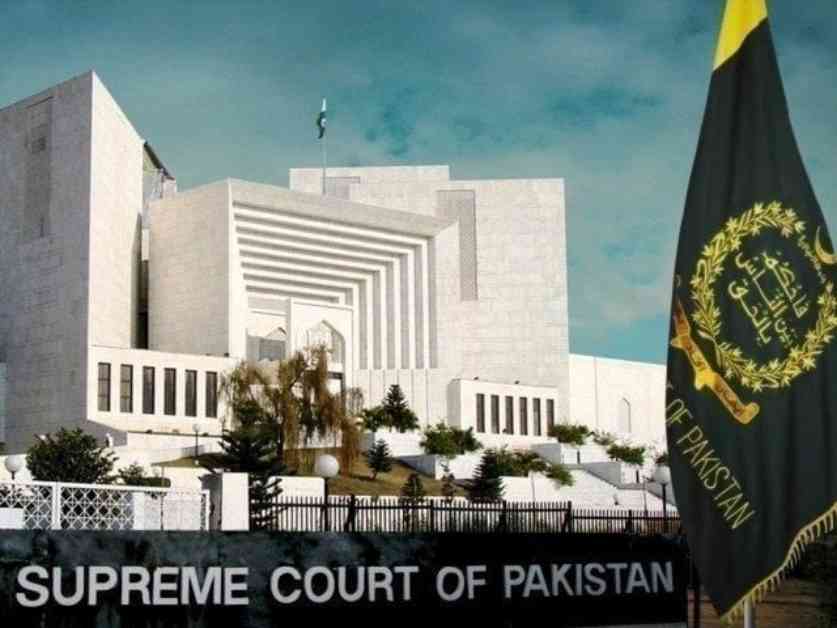Supreme Court Set to Deliver Verdict on Contempt Case Involving Additional Registrar
The Supreme Court of Pakistan is poised to announce its much-anticipated verdict on the contempt of court case involving the Additional Registrar. This decision, which has been eagerly awaited by legal experts and the public alike, will shed light on alleged violations related to the scheduling of bench powers cases.
Held by a two-member bench consisting of Justice Mansoor Ali Shah and Justice Aqeel Abbasi, the case has been the subject of intense scrutiny in recent weeks. The Supreme Court wrapped up hearings on the matter last Thursday, with Justice Mansoor Ali Shah expressing concerns about a potential oversight of a judicial order by a two-member judicial committee. Despite acknowledging the possibility of issuing contempt notices, the court opted not to do so at that time.
The origins of the contempt proceedings can be traced back to an intra-court appeal in which the Additional Registrar raised concerns about the alteration of hearing dates in official orders. Originally scheduled for January 27, the hearing date was allegedly changed to January 16, leading to a judge recusing himself from the bench. The Additional Registrar argued in his appeal that he was unfairly targeted and deprived of the chance to provide his side of the story before receiving a show-cause notice. He insisted that the notice be declared invalid, emphasizing the importance of upholding natural justice principles throughout the legal process.
Legal observers and stakeholders are eagerly awaiting the Supreme Court’s verdict, which is expected to have far-reaching implications for the administration of justice in the country. The case has drawn attention to the importance of procedural fairness and transparency in judicial proceedings, highlighting the delicate balance between judicial oversight and the protection of individual rights. As the nation awaits the court’s decision, the outcome of this case is sure to spark further debates and discussions on the role of the judiciary in upholding the rule of law.
In the meantime, the legal community continues to closely monitor developments in the case, with many speculating about the potential impact of the verdict on future judicial proceedings. The Supreme Court’s decision will undoubtedly shape the legal landscape in Pakistan and set important precedents for similar cases in the future. As the clock ticks down to the much-anticipated announcement, all eyes are on the highest court in the land as it prepares to deliver its final judgment on this critical matter.









